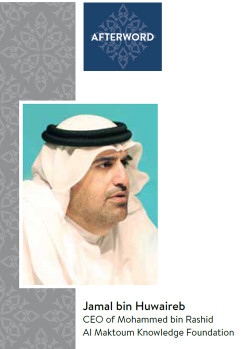Continuous Success at the Knowledge Summit
With the success of the 6th edition of Knowledge Summit, there are renewed efforts to continue promoting enlightenment and rationality, and consolidating the knowledge system that achieves sustainable development to meet future challenges.
Over the course of two days, the Knowledge Summit was held with the theme “Knowledge: The Path to Sustainable Development”. It had more than 50 sessions in which about 120 participants spoke and addressed more than 200 topics of concern to humanity in light of the current regional and international complexities.
It was held under the patronage of His Highness Sheikh Mohammed bin Rashid Al Maktoum, Vice President, Prime Minister of the UAE and Ruler of Dubai, and under the directives of His Highness Sheikh Ahmed bin Mohammed bin Rashid Al Maktoum, Chairman of the Mohammed Bin Rashid Al Maktoum Knowledge Foundation (MBRF).
At this summit, experts, academics and decision-makers from all over the world discussed regional and international challenges of sustainable development in various sectors such as health, education and economics, in addition to energy, tourism, innovation, food, among many other areas. During the sessions, each speaker disclosed his views and opinions about the aims of the sustainable development. Participants achieved remarkable success in their discussions, which was reflected in the seriousness and uniqueness of the solutions presented, as well as the recommendations that came out of the summit after two full days of effective brainstorming.
The Summit demonstrated that knowledge is the only safe way to provide sustainable solutions for the challenges posed by the present and the future. Indeed, the innovative opinions and unique solutions during the discussion panels were reflected positively on the success of the aims of the summit.
At the end of the year of tolerance, we had to celebrate a unique model in the world of tolerance: the famous African freedom fighter Nelson Mandela. He has become an icon of tolerance and peace, because he was able to resist the apartheid system that prevailed in his country, South Africa, with love and the call for tolerance.
He once said, “No one is born hating another person because of the colour of his skin, or his background, or his religion. People must learn to hate, and if they can learn to hate, they can be taught to love, for love comes more naturally to the human heart than its opposite.”
Indeed, when Mandela got out of his prison and assumed the South African presidency, he demanded that his people forget the past with their torments, forgive those who did wrong, and establish a new society based on love, tolerance and acceptance of the other.
As for the Arabic language, it will remain the shield that protects the identity of this country and all Arab countries. I am particularly happy because of the enormous support the “Bil Arabi” initiative has received over the years from various institutions, government and private authorities.
I am grateful to the officials and community members who work to promote and care for the Arabic language as well as our strategic partners who have contributed to supporting the “Bil Arabi” initiative because everyone knows that the Arabic language is a great safety valve that defends the identity of our country and our culture.








